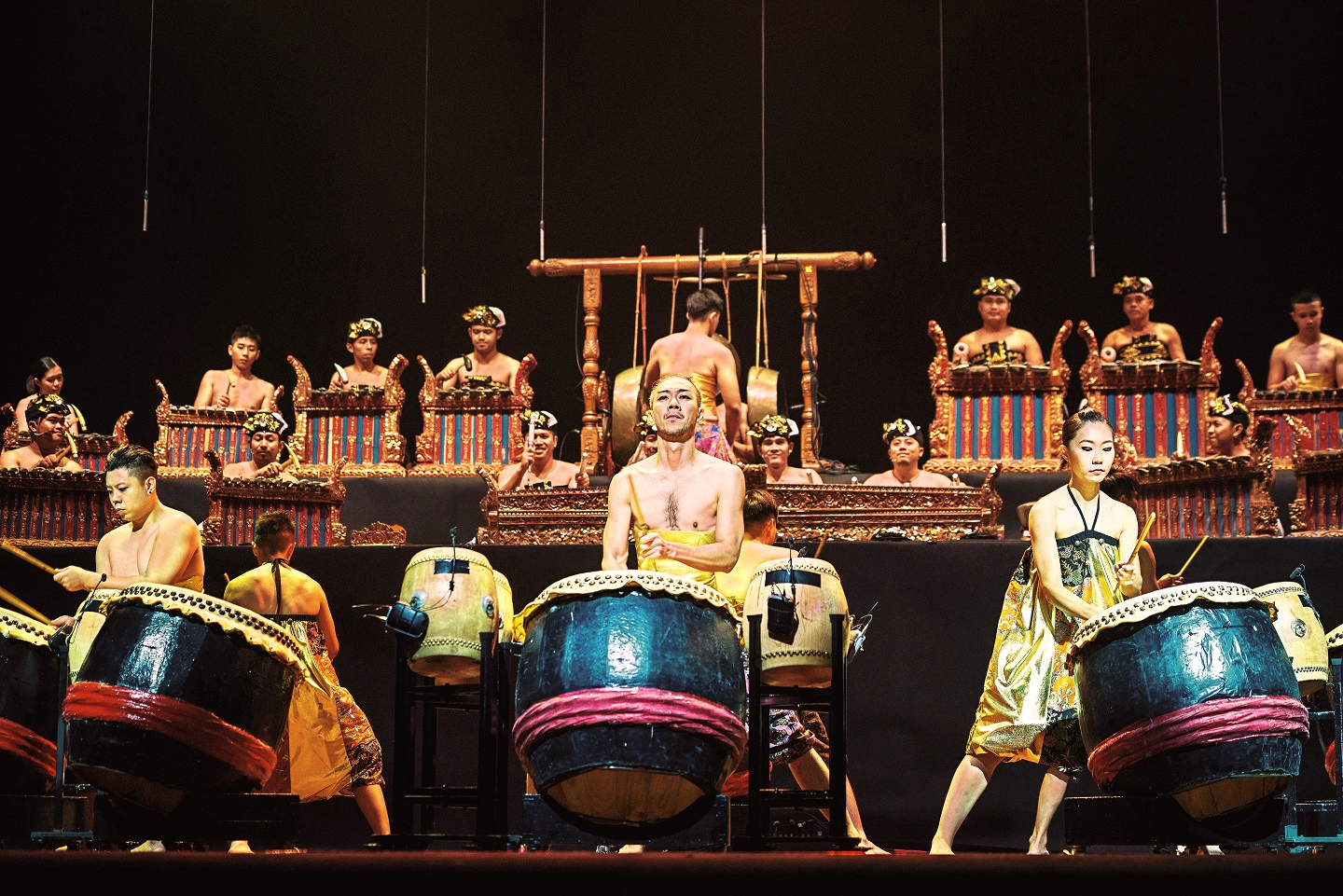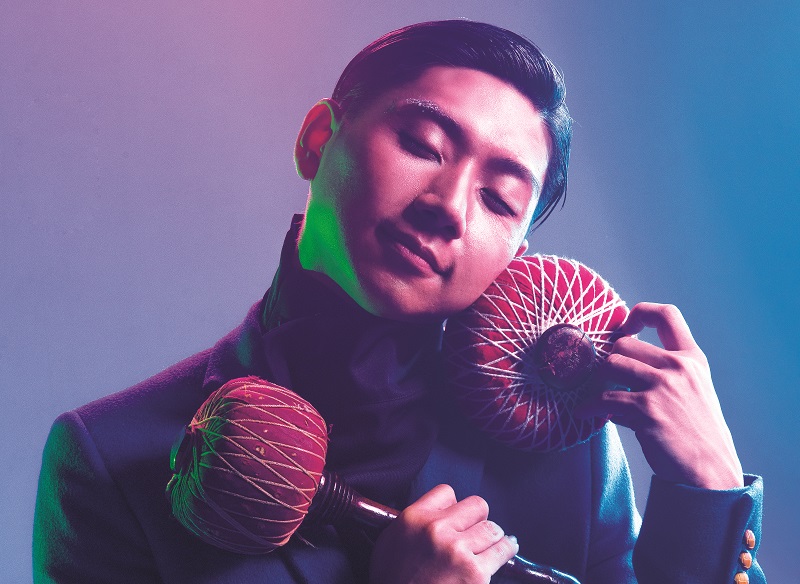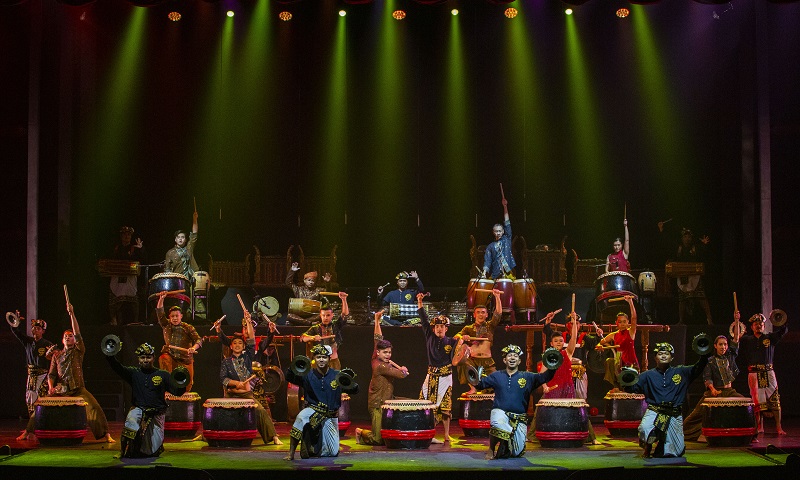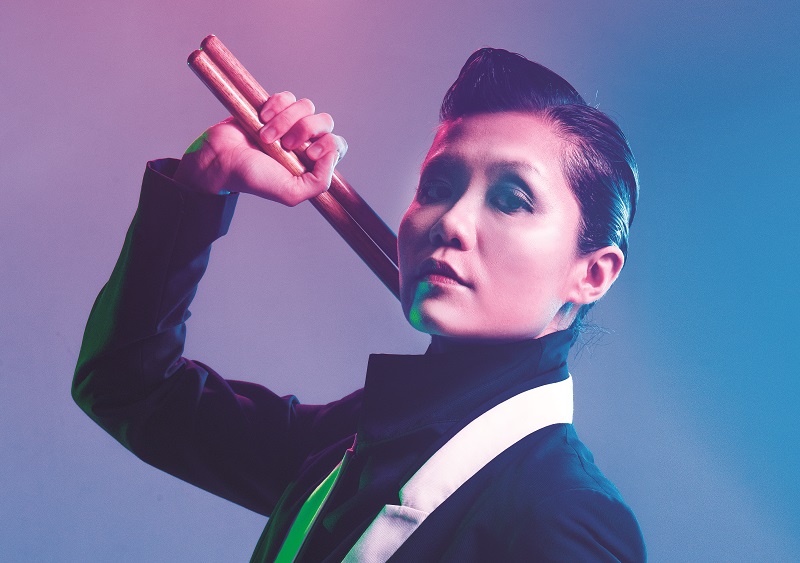
The Malaysian drumming and percussion group is no stranger to musical experimentation (Photo: Thum Chia Chieh)
Imagine a song that combines a choir, an electric guitar and both the Balinese and Malay styles of gamelan, topped off with the Chinese shigu lion dance drum — it could be cacophonous or refreshingly interesting. HANDS Percussion (HANDS) hopes it will be the latter as it gears up for its latest concert, Taksu – The Spirit of Gamelan.
The Malaysian drumming and percussion group is no stranger to musical experimentation, having made a name for itself not just for its world-class Chinese-style drum performances, but also, in the last decade, for incorporating western percussion, contemporary dance, traditional music crossovers and, perhaps most compellingly, the gamelan, into its repertoire.
In fact, its second gamelan concert in 2014 — performed to the works of Tchaikovsky — left a deep impression. However, Taksu looks set to be a significantly more ambitious effort. This new concert will feature, for the first time, Chinese drumming alongside the lilting sounds of the gamelan, a performance that HANDS earlier this year gave a taste of during the George Town Festival in Penang.
20180531-752.jpg

“This time, we have invited a Balinese gamelan group, Yuganada, through our Balinese gamelan teacher, Sudi (I Wayan Sudirana), to perform with us. There’ll be 18 of them, and about 12 of us. We’ve also invited a choir group from Klang, La Voce Choir, and more, which makes this a production of over 40 people,” says Jack Wan, head of HANDS’ gamelan section.
The collaboration was sparked three years ago when HANDS artistic director Bernard Goh met Sudirana and invited him to teach the company the Balinese gamelan over several workshops.
But the essence of the show’s theme, taksu — a Balinese word that means the charisma or spirit encapsulated within the arts that captures one’s eyes, minds and hearts — is also an indirect tribute to the late Krishen Jit, the theatre doyen who first inspired Goh to take a risk with their 2007 performance, Chaos in Unison, which also marked the start of the company’s evolvement. Goh also credits Krishen for introducing him to gamelan theatre through the latter’s final production, Five Arts Centre’s Monkey Business.
taksu_32-_photo_credit-_melvinxb.jpg

“Here, we look at taksu as the spirit of gamelan. In this case, we’ve put together a few different styles of music, particularly the combination of two gamelan styles, to create something new,” says HANDS music director Ng Siu Yee, who composed the piece featuring the electric guitar.
She says the performance can be divided into two halves, with the first focusing on the Balinese gamelan and featuring new compositions by Sudirana. Apart from drumming, Sudirana also included the marimba and vibraphone in his compositions when he found out that HANDS’ members are well-versed with the instruments. Erhu player Lim Wei Siong will also perform in this segment.
The second half will be helmed by the local team, with two original compositions by HANDS and a piece by Mak Yong star Zamzuriah Zahari.
“It will be the first time the gamelan will accompany Mak Yong, with singers from the choir backing Zamzuriah,” notes Wan. Kelantanese percussive musician Mat Din Hussin will also be performing, with theatre actor Ghafir Akbar helming as director, rounding up the diverse and extensive ensemble.
“Even for us, who have always tried new things, this is another level, another culture altogether, I would say,” says Wan. Ng agrees, “We are pushing the boundaries much more than before in terms of style and level of collaboration to create something new.”
20180531-540.jpg

For the audience, the duo hope that people will just come with an open mind and enjoy the new experience. They explain the difference between the Malay and Balinese styles of gamelan: “The gamelan has distinctive sounds based on the region [they are from]. In Indonesia, there are three major styles —Javanese, Balinese and Sundanese. We’ve been learning and playing what can be considered the Javanese gamelan, which is traditionally played in the royal courts, so it’s more regal,” says Wan. “Whereas in Bali, the gamelan is linked to religious rituals and is played everywhere, every day. Our teacher actually told us that in Bali, there are no professional musicians because everyone knows how to play it. It’s a totally different culture.”
“The Malay gamelan takes after the Javanese, so it’s sweeter and mellower, more romantic in a way. Balinese gamelan has a fast tempo and the sound is sharper. So when we combine them, it gives a new and different feeling, part sweet and part exciting,” Ng explains.
It has become HANDS’ hallmark to push its musical limits and pursue new possibilities and genres, but Ng says for the company — which is Malaysia’s first and only self-funded professional percussion group with a line-up of full-time members — it is not about picking up random instruments they fancy and tinkering with them. “When we do something new, we take a few years to learn it, study it, and get to know it better,” she points out.
Wan concurs. He has spent the last 10 or so years studying the gamelan, first under Susan Sarah John and now under Sudirana for the Balinese gamelan. “All the members (full-time and part-time) learn it. We have made it a key component of the HANDS repertoire. One of my responsibilities now is to guide our new members and impart the knowledge we’ve learnt to them,” he highlights.
For those familiar with the group’s notable work ethic, this does not come as a surprise. Ng adds that as a company, HANDS has been refining and revisiting the foundations and basics of percussion technique. She says, “We started with Chinese drumming, which is not really a technique-based form as much as it is learned through experience. So, in the past few years, we’ve really been learning things like the Western stroke, to reconfigure how we hold the drum sticks, how we handle the tempo, hit the notes, use different parts of our muscles. We’re strengthening our music playing, going in with more detail (finesse) but also more fun, even as we still keep our signature style of movements. This will become a new normal for us eventually — the new signature HANDS style.”
'Taksu – The Spirit of Gamelan' will be held from Oct 4 to 6 at Pentas 1, Kuala Lumpur Performing Arts Centre, Jalan Strachan, KL. Tickets are priced from RM88 to RM238. Buy tickets here.
This article first appeared on Sept 23, 2019 in The Edge Malaysia.


